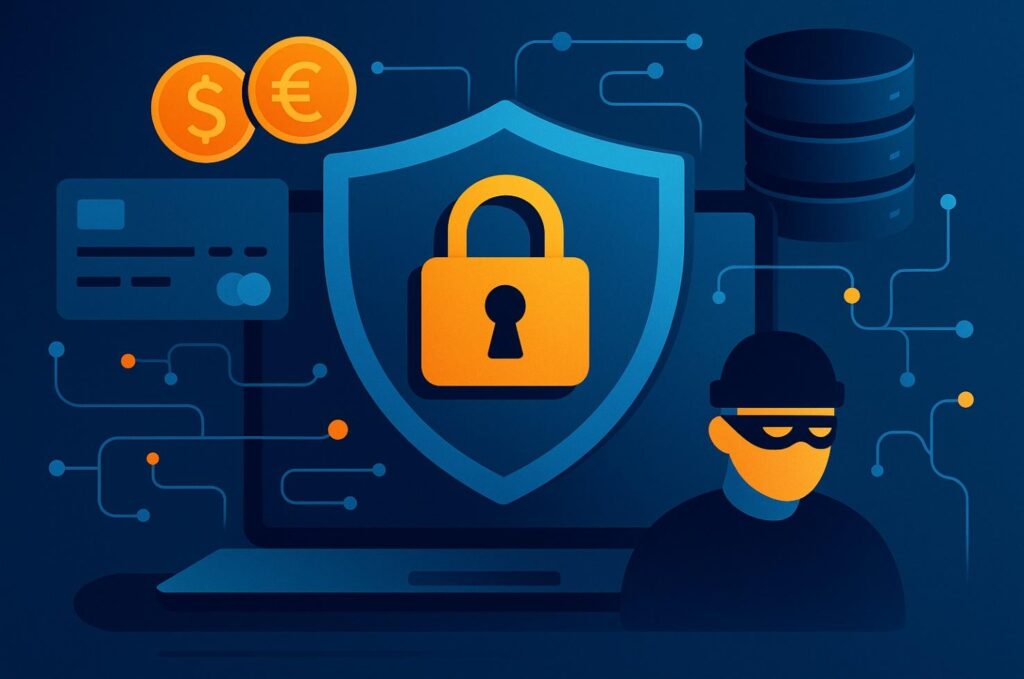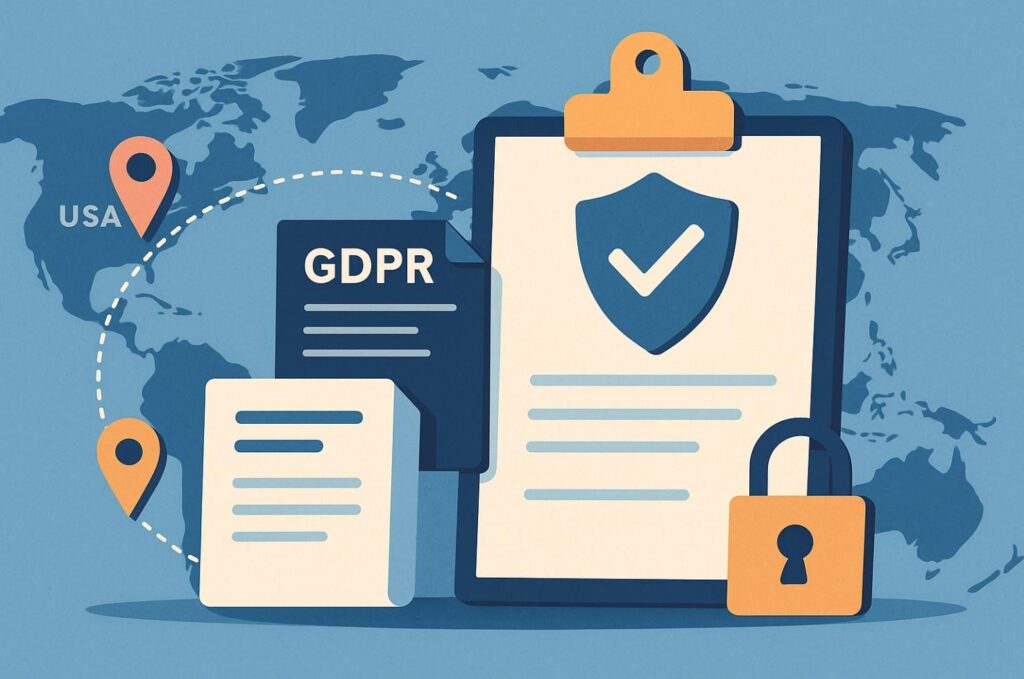Introduction
For fintech startups, 2025 won’t just be about speed — it will be about survival.
As digital finance platforms grow more sophisticated, so do the risks they face. Transaction data is under constant threat, remote work complicates access control, and regulatory frameworks are tightening across jurisdictions. Founders can no longer treat security as an afterthought — it has become a core element of product integrity and user trust.
This article breaks down five critical security challenges that every fintech startup must address in 2025. From protecting financial transactions to staying compliant across borders, you’ll discover practical tools — including where VPN can support encrypted data workflows — to build a secure and scalable fintech operation.

Challenge 1: Securing Financial Transactions Against Breaches
In fintech, financial data is the lifeblood of trust — and a top target for cybercriminals. Startups handling digital payments, lending, or investment products face persistent threats from insecure APIs, misconfigured cloud storage, and vulnerable third-party integrations.
These risks are amplified by lean, distributed teams who frequently access backend environments from remote locations and mixed-security networks. One common mitigation strategy is the use of encrypted data tunnels, such as those provided by VPNs, to protect sensitive transaction workflows during development, testing, or platform updates — especially when traffic crosses borders or public infrastructure.
Why This Is a Top Risk
- Payment data is often transmitted through multiple third-party processors and services.
- According to the latest full-year data, API-based attacks on fintech platforms rose by 22% in 2024.
- One successful breach can expose thousands of sensitive records, triggering regulatory penalties and investor pullback.
Solutions
- Apply end-to-end encryption across all transactional systems, including internal services.
- Implement TLS 1.3 or higher for web and mobile interfaces.
- Deploy VPN based encrypted access for remote work scenarios, particularly during staging, deployment, or support activities.
- Use real-time threat detection and logging at all high-traffic or API-connected endpoints.
A security-first approach to data flows — especially in early-stage infrastructure — is a strategic foundation, not an operational burden.
Challenge 2: Managing Remote Access Without Compromising Security
The remote-first model has become standard among fintech startups. While it enables lean operations and global hiring, it also introduces serious access control risks.
The Problem
- Developers log into admin dashboards from coffee shops.
- Finance teams review PII data over personal Wi-Fi.
- Operations teams rely on dozens of SaaS tools — each with separate logins.
These decentralized behaviors multiply attack vectors.
Solutions
- Adopt a Zero Trust Architecture (ZTA): trust nothing, verify everything.
- Use Single Sign-On (SSO) + Multi-Factor Authentication (MFA) for all services.
- Secure all devices with Endpoint Detection and Response (EDR) tools.
By implementing a zero-trust model, fintech startups create hardened access pathways that prevent unauthorized entry — even if credentials are leaked.
Challenge 3: Preventing Insider Breaches and Access Mismanagement
Not all threats come from outside. As startups scale, the complexity of access rights and internal data governance increases. Without proper controls, one wrong permission or disgruntled employee can lead to massive data exposure.
What Goes Wrong
- Admin privileges granted to marketing staff for “testing”
- Former developers retaining backend access
- No visibility into who accessed sensitive data — or when
Solutions
- Implement Role-Based Access Control (RBAC) from Day 1
- Regularly audit access logs and adjust permissions
- Deploy Just-In-Time Access (JIT) for time-sensitive privileges
Treat access like code — it should be versioned, traceable, and revocable.

Challenge 4: Navigating Compliance Across Jurisdictions
Compliance isn’t just for enterprise firms. Regulations like GDPR, PCI-DSS, and SOC 2 apply the moment a fintech handles payment data, stores PII, or operates across borders.
Common Pitfalls for Startups
- Collecting EU user data without GDPR provisions
- Running analytics on US financial data from overseas teams
- Overlooking data localization laws in markets like India or China
Solutions
- Align infrastructure with data residency and sovereignty requirements by market.
- Use geo-specific cloud environments (e.g. AWS Frankfurt for EU data).
- Conduct Privacy Impact Assessments (PIAs) before entering new regions.
- Where needed, apply controlled VPN routing to maintain jurisdictional data compliance during dev/test stages.
Challenge 5: Defending Against Phishing and Social Engineering
While your security stack may be robust, your team’s inbox is often the weakest link.
What Makes Fintech a Prime Target?
- Founders and CFOs are high-value phishing targets.
- Hackers impersonate investors or vendors to extract credentials.
- Phishing-as-a-service platforms have lowered the barrier to entry for attackers.
In one 2024 case, a US-based fintech lost $120,000 after a junior accountant paid a fake invoice from a spoofed “legal advisor.”
Solutions
- Implement employee security awareness training every quarter.
- Enforce strict vendor verification protocols for all payments.
- Use domain authentication (SPF/DKIM/DMARC) to prevent spoofed emails.
- Apply email encryption and secure DNS filtering to block risky content.
Phishing isn’t just an IT issue — it’s a cultural one. Your defense depends on whether your team knows how to spot a fake login screen or an unusual “urgent” request.
Final Thoughts: Build Security Like You Build Product
Security is not a separate track — it’s embedded infrastructure.
For fintech startups in 2025, solving these five challenges is not just a way to protect your operations — it’s a strategic investment in customer trust, compliance readiness, and long-term scalability.
Tools like VPNs, RBAC, endpoint security, and zero-trust models aren’t just for big banks — they are practical, affordable, and essential for early-stage fintechs. Treat security not as a cost, but as an enabler of safe innovation.
Your next round of funding might depend on it.
FAQs
In 2025, the digital finance landscape is becoming increasingly sophisticated, which means the risks fintech startups face are also growing. Security is no longer an afterthought; it’s a core component of product integrity and user trust. With constant threats to transaction data, the complexities of remote work, and tightening regulations, prioritizing security is essential for survival, not just speed. A single breach can lead to severe regulatory penalties, loss of investor confidence, and a damaged reputation.
While remote-first models offer flexibility, they introduce significant access control risks. To mitigate these, fintech startups should adopt a Zero Trust Architecture (ZTA), which means “trusting nothing and verifying everything.” This involves implementing Single Sign-On (SSO) and Multi-Factor Authentication (MFA) for all services, and securing all devices with Endpoint Detection and Response (EDR) tools. By hardening access pathways, you can prevent unauthorized entry even if credentials are leaked.
VPNs (Virtual Private Networks) are a key tool for enhancing security, particularly in scenarios involving sensitive data and remote access. They provide encrypted data tunnels that protect sensitive transaction workflows during development, testing, or platform updates, especially when traffic crosses borders or public infrastructure. Additionally, VPNs can support jurisdictional data compliance by enabling controlled routing to specific geo-specific cloud environments, ensuring data residency and sovereignty requirements are met.


